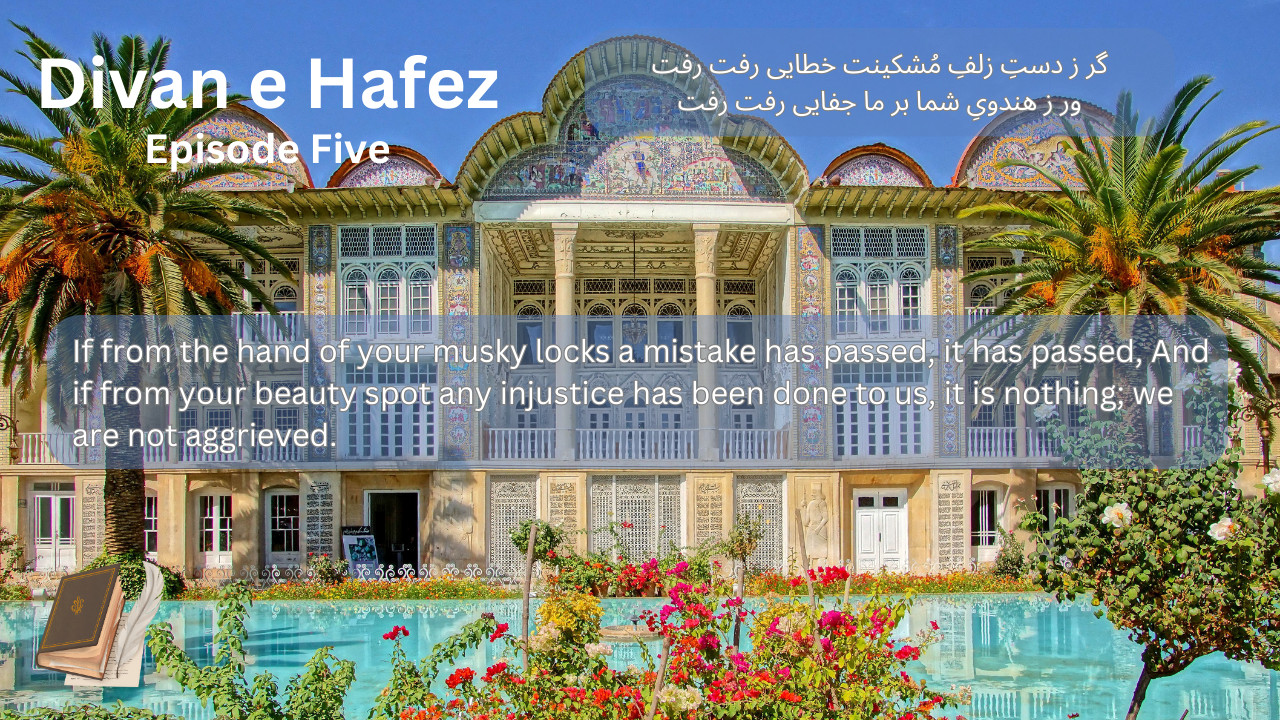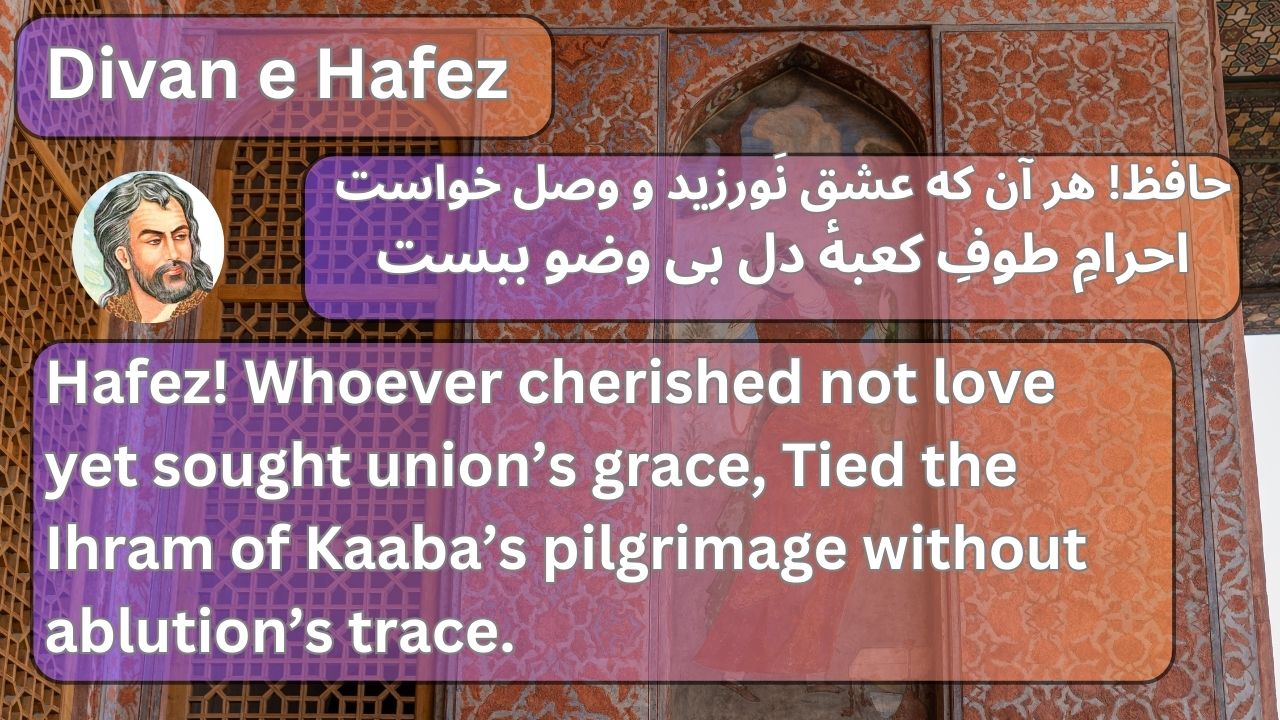We read each line in original Persian and then its translation to English.
گر ز دستِ زلفِ مُشکینت خطایی رفت رفت
ور ز هندویِ شما بر ما جفایی رفت رفت
اگر از دست زلف سیاه تو گناهی سرزده است ، مشکلی نیست و اگر از خال سیاه او برما ستم شد، چیزی نیست ما آزرده نمی شویم.
If from the hand of your musky locks a mistake has passed, it has passed, And if from your beauty spot any injustice has been done to us, it is nothing; we are not aggrieved.
برقِ عشق ار خرمنِ پشمینه پوشی سوخت سوخت
جورِ شاه کامران گر بر گدایی رفت رفت
اگر آتش عشق به خرمن هستی درویش پشمینه پوش زده شد، جای شکایت نمی باشد و اگر ستم سلطان کامروای کشور برگدایی رسید چیز مهمی نیست!
If the lightning of love has burnt the harvest of the wool-wearer, it has burnt, And if the tyranny of the fortunate king has befallen a beggar, it has passed, it has passed.
در طریقت رنجشِ خاطر نباشد می بیار
هر کدورت را که بینی چون صفایی رفت رفت
در راه سیر و سلوک و معرفت به اسرار حق، رنجش خاطر معنا و مفهومی ندارد. باده پیشآر که هر کدورتی، چون به صفا و آشتی کشید، گذشت و تمام شد.
In the path of mysticism, there is no place for the anguish of the heart, bring wine, For any cloudiness that you see, once it has cleared, it has passed, it has ended.
عشقبازی را تحمل باید ای دل، پای دار
گر ملالی بود بود و گر خطایی رفت رفت
ای دل، لازمه عشقبازی تحمل و بردباری است. استقامت داشته باش. اگر ملال و اندوهی در میان بود یا خطایی پیش آمده بود گذشت و تمام شد.
O heart, endurance is required for the game of love, be steadfast, If there was any grief, it was, and if a mistake has passed, it has passed.
گر دلی از غمزهٔ دلدار باری برد برد
ور میان جان و جانان ماجرایی رفت رفت
اگر دلی زیر بار ناز و عشوه دلبری به ستوه آمد و میان عاشق و معشوقی برخوردی صورت گرفت، گذشت و تمام شد.
If a heart has carried any weight from the beloved’s coquetry, it has carried, And if there was any affair between the soul and the beloved, it has passed, it has ended.
از سخن چینان ملالتها پدید آمد ولی
گر میانِ همنشینان ناسزایی رفت رفت
سخنچینان سبب ملامت خاطرها شدند و به سبب آن اگر میان همنشینان ناسزایی رد و بدل گردید، گذشت وتمام شد.
From the talebearers, many grievances have arisen, but If any indecency has passed among companions, it has passed, it has ended.
عیبِ حافظ گو مکن واعظ که رفت از خانقاه
پای آزادی چه بندی؟ گر به جایی رفت رفت
به واعظ بگو از حافظ بدگویی نکند. او ازاین خانقاه (شهر) به دررفت. برای پای آزادی بندی متصور نیست به هرکجا رفت رفت. گذشت و تمام شد.
Do not speak ill of Hafez, O preacher, for he has left the monastery, What shackles can hold the foot of freedom? Wherever it has gone, it has gone. It has passed, it has ended.
This ghazal reflects on the transient nature of mistakes and grievances, emphasizing forgiveness and the passage of time. Hafez uses the metaphor of a ‘harvest burnt by lightning’ to illustrate the insignificance of worldly troubles in the face of love and mysticism. The poem encourages patience and resilience, suggesting that all hardships will eventually pass, just as Hafez himself was exiled from Shiraz to Yazd because of his thoughts and beliefs and expressing them in his poems.





